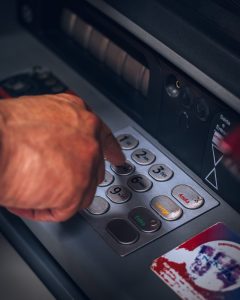Forex, or foreign exchange, is the largest financial market in the world, with a daily turnover of around $6.6 trillion. It is a decentralized market where currencies are traded 24/7, with no central exchange or regulatory body. Given its huge size and importance, it is natural to ask: how long will forex exist?
The short answer is that forex is likely to exist as long as there are currencies and international trade. Currencies are essential to global commerce, and as long as countries have different currencies, there will be a need to exchange them. Forex provides the infrastructure for this exchange, and thus is an integral part of the global economy.
However, the long-term future of forex may be influenced by several factors, some of which are already visible today. Let’s take a closer look at these factors.
Technology
One of the biggest drivers of change in the forex industry is technology. The rise of electronic trading platforms and algorithmic trading has transformed the way forex is traded. Today, the vast majority of forex trading is done electronically, with human traders playing a smaller role. This trend is likely to continue, as technology continues to advance and new trading platforms emerge.
One potential impact of technology on forex is that it could make the market more efficient and transparent. Electronic trading platforms allow for faster and more accurate price discovery, while algorithmic trading can help reduce market inefficiencies. This could lead to lower transaction costs and more liquidity, which would be a benefit for traders and investors.
Regulation
Another factor that could shape the future of forex is regulation. While forex has traditionally been a lightly regulated market, this is changing as regulators around the world seek to clamp down on fraud and misconduct. In particular, there has been a push to increase transparency in the forex market, with regulators requiring more reporting and disclosure from market participants.
This increased regulation could have both positive and negative impacts on forex. On the one hand, it could help reduce fraud and improve market integrity. On the other hand, it could increase compliance costs for market participants and potentially reduce liquidity if some players are forced to exit the market.
Geopolitics
Geopolitical factors could also play a role in the future of forex. The value of currencies is closely tied to the economic and political stability of the countries that issue them. Changes in government policies, trade agreements, and other geopolitical events can have a significant impact on currency values.
For example, the Brexit vote in 2016 led to a sharp drop in the value of the British pound, while tensions between the US and China have led to fluctuations in the value of the Chinese yuan. As geopolitical tensions continue to rise around the world, forex traders will need to be vigilant and adapt to changing market conditions.
Conclusion
In conclusion, while it is impossible to predict the future of forex with certainty, it is likely to continue to exist as long as there are currencies and international trade. However, the market is likely to evolve and change in response to technological, regulatory, and geopolitical factors. Traders and investors who are able to adapt to these changes will be best positioned to succeed in the forex market over the long term.






